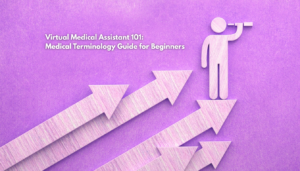How Is AI Used in Healthcare: Transforming Patient Care and Diagnosis
09 Jul 2025 By: Vlade Legaspi
Updated
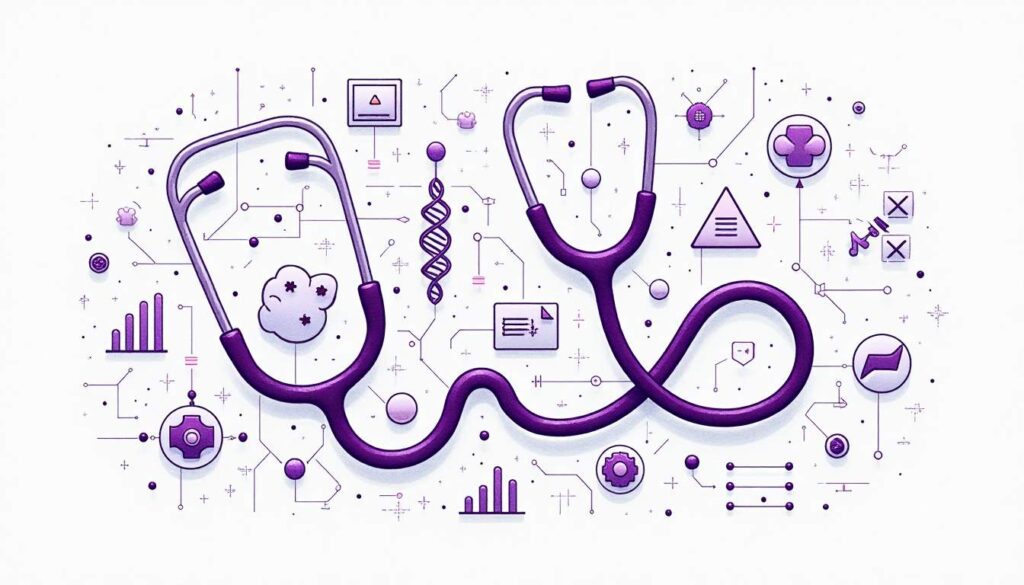
AI is used in healthcare to improve patient care, speed up diagnosis, and automate routine admin work by analyzing large amounts of clinical data. It supports virtual health assistants that handle scheduling and reminders, helps doctors spot issues in images like X-rays or CT scans, and powers remote monitoring through wearables. For example, an AI system can flag a possible tumor on a scan for a radiologist to review, which can reduce delays and missed findings.
The Role of AI in Patient Care
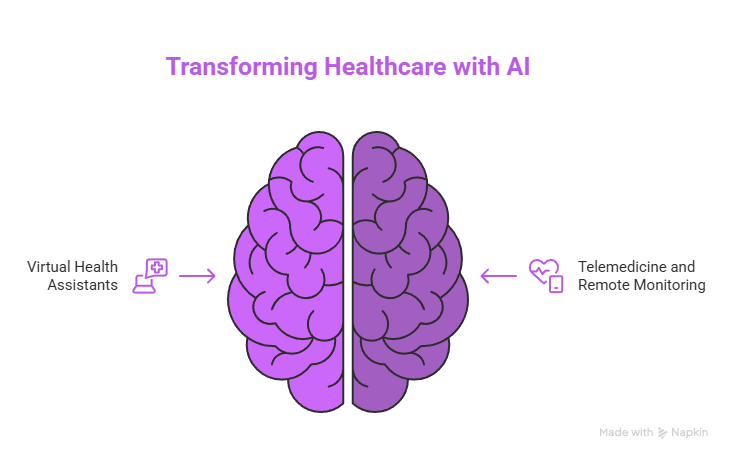
The medical field uses AI to deliver advanced tools that enhance healthcare service quality while improving operational efficiency. Through virtual health assistants and predictive analytics AI transforms healthcare service delivery between providers and patients.
Virtual Health Assistants
Virtual health assistants which use artificial intelligence give patients continuous access to medical data and healthcare resources. Virtual health assistants powered by AI technology allow patients to access medical information and appointment booking and send medication reminders. Virtual health assistants enable 24/7 patient access to medical care thus helping both providers and patients in their health management responsibilities.
These assistants analyze patient data to generate personalized health recommendations for their users. The virtual assistant recognizes repeated diabetes symptom inquiries from patients by suggesting dietary advice while prompting them to book an appointment. The high level of patient involvement leads to better health management practices. Natural language processing capabilities integrated into these assistants enable them to understand patient questions while providing human-like conversational responses which improves the overall user experience. Patients experience higher satisfaction rates because the system demonstrates better understanding of their needs.
Telemedicine and Remote Monitoring
AI technologies have played a major role in the expansion of telemedicine services. AI algorithms inside remote monitoring tools enable real-time tracking of patient vital signs together with various health metrics. The combination of these tools enables healthcare providers to keep patients under continuous observation and detect health issues early before they become severe.
The combination of wearable devices allows patients and healthcare providers to receive automated alerts when medical issues are detected through monitoring of heart rate and blood pressure and glucose levels. Through this active monitoring approach healthcare providers can provide quick interventions which result in better patient outcomes alongside decreased hospital admission rates. Through analysis of device-collected data AI systems can reveal patterns in patient health development thus helping doctors make better treatment decisions. The ability to track patient health continuously proves especially important for chronic condition management because ongoing monitoring leads to better care results. The advancement of AI technology will produce advanced tools which will blend into everyday patient life to create highly personalized healthcare services.
How Is AI Used in Healthcare: AI in Diagnosis and Treatment
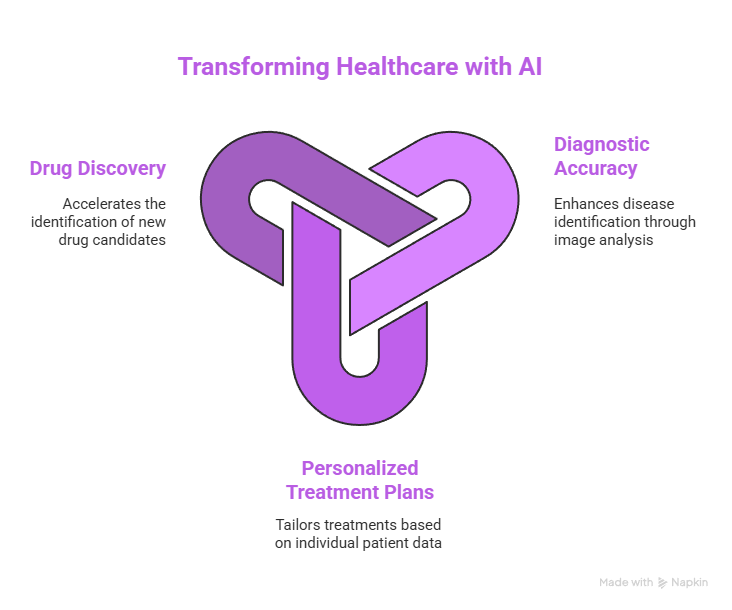
Healthcare professionals can use artificial intelligence to gain new capabilities in diagnosis and treatment planning according to the most promising application of AI in medical settings. Machine learning algorithms process extensive medical data to reveal patterns which human clinicians might overlook.
Enhancing Diagnostic Accuracy
Artificial intelligence systems learn to identify diseases through analyzing medical images especially in radiology applications. AI algorithms perform X-ray MRI and CT scan analysis to find irregularities including tumors and fractures. AI algorithms demonstrate diagnostic capabilities equal to and occasionally superior to human radiologist performance in research findings.
The diagnostic procedure becomes faster while human errors decrease through the use of this technology. The additional review from AI systems ensures that vital medical diagnoses receive proper identification which leads to improved treatment possibilities for patients. The implementation of AI in diagnostic workflows enables radiologists to focus on difficult cases needing human expertise while AI handles less complex diagnostic tasks.
AI continues to improve its functionality which now extends beyond its initial image analysis capabilities. Natural language processing (NLP) processes unstructured clinical notes along with lab results and patient histories to create a complete patient condition understanding. A comprehensive diagnostic system through this approach boosts accuracy while creating an environment where AI systems work together with healthcare professionals.
Personalized Treatment Plans
AI creates personalized medical care through individualized treatment plans which use genetic profiles and health records of patients. Through machine learning algorithms analysis of genetic test data and other information sources enables prediction of patient responses to particular medical treatments.
Healthcare providers benefit from this system because they can pick the therapies that will work best for individual patients while avoiding trial-and-error processes that may result in adverse effects. By implementing AI solutions patients get better treatment options immediately which leads to better medical care outcomes. Real-time monitoring of patient treatment responses by AI systems allows healthcare providers to modify plans so they achieve maximum benefits.
Artificial intelligence has a remarkable capability to discover new drugs. AI examines vast datasets to discover new drug candidates while predicting their effectiveness and safety profiles before clinical trials begin. The process of new therapy development becomes faster while the drug development expenses decrease dramatically because of this technology. Research advances in AI technology will drive changes in personalized medicine which will result in advanced therapeutic approaches for different patient groups.
Streamlining Administrative Processes
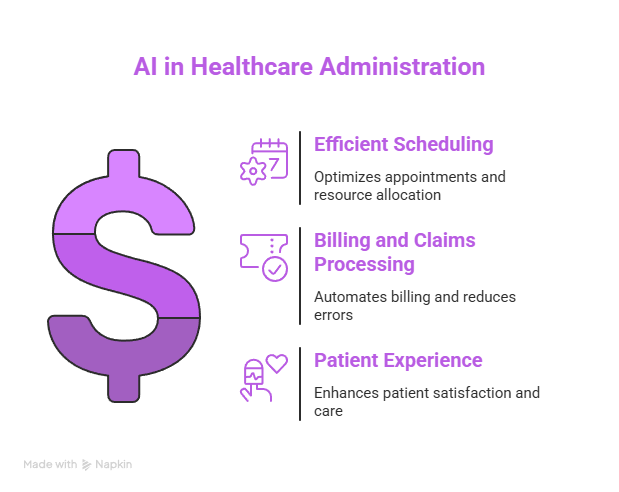
AI systems have started to improve healthcare administration processes by enhancing both patient treatment and diagnostic accuracy. The implementation of AI for routine tasks like documentation through AI SOAP note generators enables healthcare professionals to allocate their time better for caring for their patients, reducing time spent on manual record-keeping.
Efficient Scheduling and Resource Management
AI scheduling systems optimize appointment bookings by studying patient information and anticipating patient needs to create better schedules. Through automated resource distribution systems healthcare facilities maintain proper staff numbers and equipment levels for patient service needs.
Through AI technology patients experience shorter waiting times since the systems identify busy times to readjust appointment schedules. The implementation of such systems results in better patient contentment together with enhanced operational performance in healthcare delivery.
Billing and Claims Processing
The process of billing and claims processing is both complicated and time-consuming. The implementation of AI technologies for automation enables the reduction of administrative tasks while decreasing the number of errors made. The analysis of billing information by AI systems helps detect errors in claims and ensures proper and quick claim processing.
The automated process both accelerates revenue cycle operations for healthcare providers while providing patients with improved visibility into their medical expenses. Patients obtain detailed explanations of their medical expenses which decreases their confusion and leads to better care experiences.
Challenges and Considerations
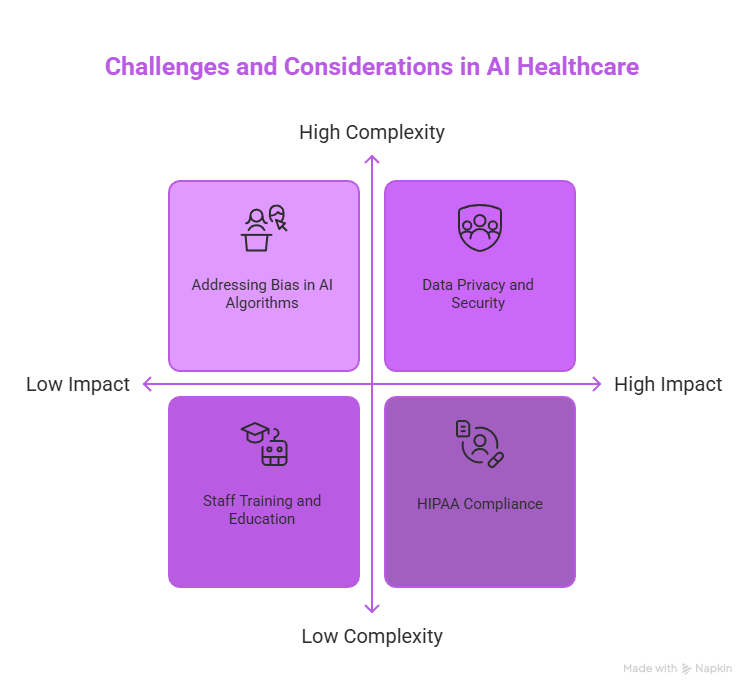
The substantial advantages of AI in healthcare require attention to multiple challenges and ethical matters. AI systems must maintain reliability and bias-free operations and ensure security to become part of healthcare infrastructure.
Data Privacy and Security
AI applications in healthcare depend on processing and evaluating sensitive patient information. The protection of this data stands as an absolute requirement since any breaches would create serious problems for healthcare providers and their patients. Healthcare organizations need to establish strong security protocols while following HIPAA regulations to build patient trust.
Healthcare organizations need to incorporate privacy principles into the design of their AI systems. The implementation of data anonymization methods together with purpose-specific data utilization represents essential security practices. Healthcare providers can use AI technologies while safeguarding patient information when they establish privacy as their top priority.
Addressing Bias in AI Algorithms
AI algorithms function at their best level based on the quality of training data they receive. The quality of AI system output depends on its training data quality because unbalanced or biased inputs can create unfair treatment of patients. Developers should utilize varied datasets and perform continuous AI performance checks to detect and correct any biases that appear.
Healthcare facilities need to provide their staff with ongoing training combined with education to build understanding about AI system boundaries as well as potential biases. Through awareness building healthcare providers gain necessary understanding to make informed decisions about AI applications in patient care.
The Future of AI in Healthcare
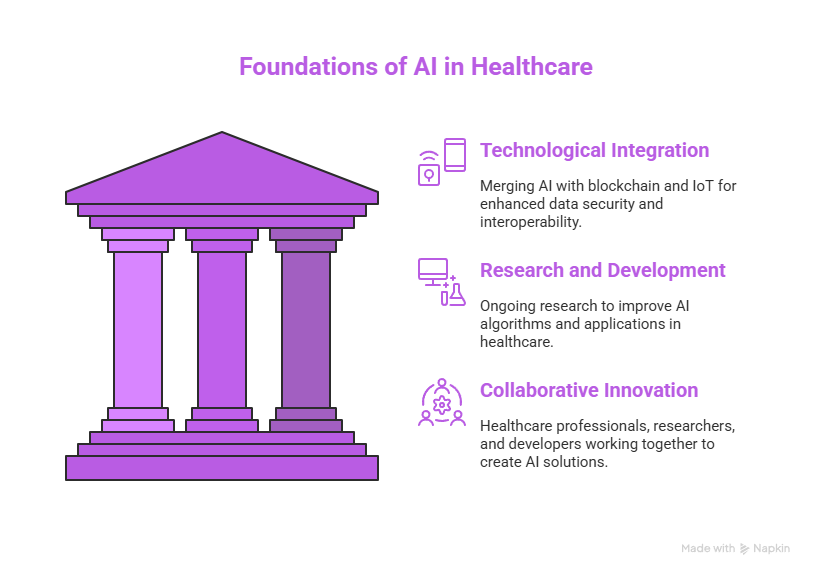
AI holds extensive potential for transforming healthcare practices. Technology advances will increase the significant role AI plays in delivering healthcare services across various aspects of healthcare delivery. Many possibilities exist for healthcare improvement including better diagnosis and patient involvement.
Integration with Other Technologies
AI will probably merge with blockchain technology as well as Internet of Things (IoT) systems. Such a convergence can produce healthcare solutions that both boost data security and allow better data interoperability. The real-time data collected by IoT devices enables AI systems to generate actionable healthcare insights for providers.
The implementation of blockchain technology will maintain patient data security thus building trust in AI-based systems. A unified healthcare ecosystem will emerge through this integration to deliver better patient care results alongside secure data handling.
Continued Research and Development
The future will bring additional AI applications while improving current technologies because research activities will continue in this field. Healthcare providers who choose to implement AI solutions will obtain improved effectiveness from their systems because real-world data will help optimize their algorithms.
Healthcare professionals need to work with researchers together with technology developers to advance innovation through collaboration. Through joint efforts stakeholders can design AI solutions which fulfill the needs of patients and providers which results in superior healthcare results.
TRENDING NOW!
Artificial Intelligence (AI) is reshaping the healthcare industry by accelerating diagnostics, personalizing treatments, and increasing the efficiency of medical processes. With the rise of wearable tech, early detection of illnesses—even before symptoms appear—is becoming standard. AI is already demonstrating superior accuracy in detecting diseases like skin cancer and eye conditions, as seen in collaborations like Google DeepMind and Moorfields Eye Hospital. It’s also transforming drug development by analyzing massive datasets to streamline trials and tailor medications to individual patients. Moreover, AI has shown promise in predicting patient outcomes—such as coma recovery—and assisting in clinical decisions previously left solely to human judgment.
AI’s ability to interpret medical images and records is reducing the burden on radiologists, while mental health chatbots and behavior-tracking tools are revolutionizing how conditions like depression in men and other mental health challenges are diagnosed and treated. From analyzing brain scans to supporting daily hospital operations, AI has proven its reliability across various use cases. In China, a robot doctor equipped with vast medical knowledge successfully passed licensing exams, illustrating the potential of AI to supplement or even exceed human performance in knowledge retention and decision-making. These advancements offer a glimpse into a future where AI is deeply integrated into healthcare systems, enhancing both patient care and clinical efficiency.
Conclusion
Healthcare experiences transformation through AI technology. AI technology allows doctors to provide better medical care by detecting health problems earlier while minimizing administrative work. The implementation of AI technology delivers specific benefits to healthcare systems while ongoing challenges persist. Healthcare providers should use technological advancements with caution by maintaining patient safety and ethical standards.
The implementation of AI produces maximum benefits which lead to better patient interactions and faster diagnostic results and customized medical treatments. The transformation has begun and the upcoming years appear promising.
As we navigate the exciting intersection of AI and healthcare, consider the power of efficiency and expert support in your own organization. HelpSquad Health stands ready to enhance your operations with our virtual assistant and 24/7 customer service team. Specializing in customer support, back-office tasks, and research, our bilingual agents are available starting at just $9 per hour. Embrace the future of healthcare with HelpSquad Health’s commitment to excellence. Start Trial today and experience the transformative impact on your medical practice.

